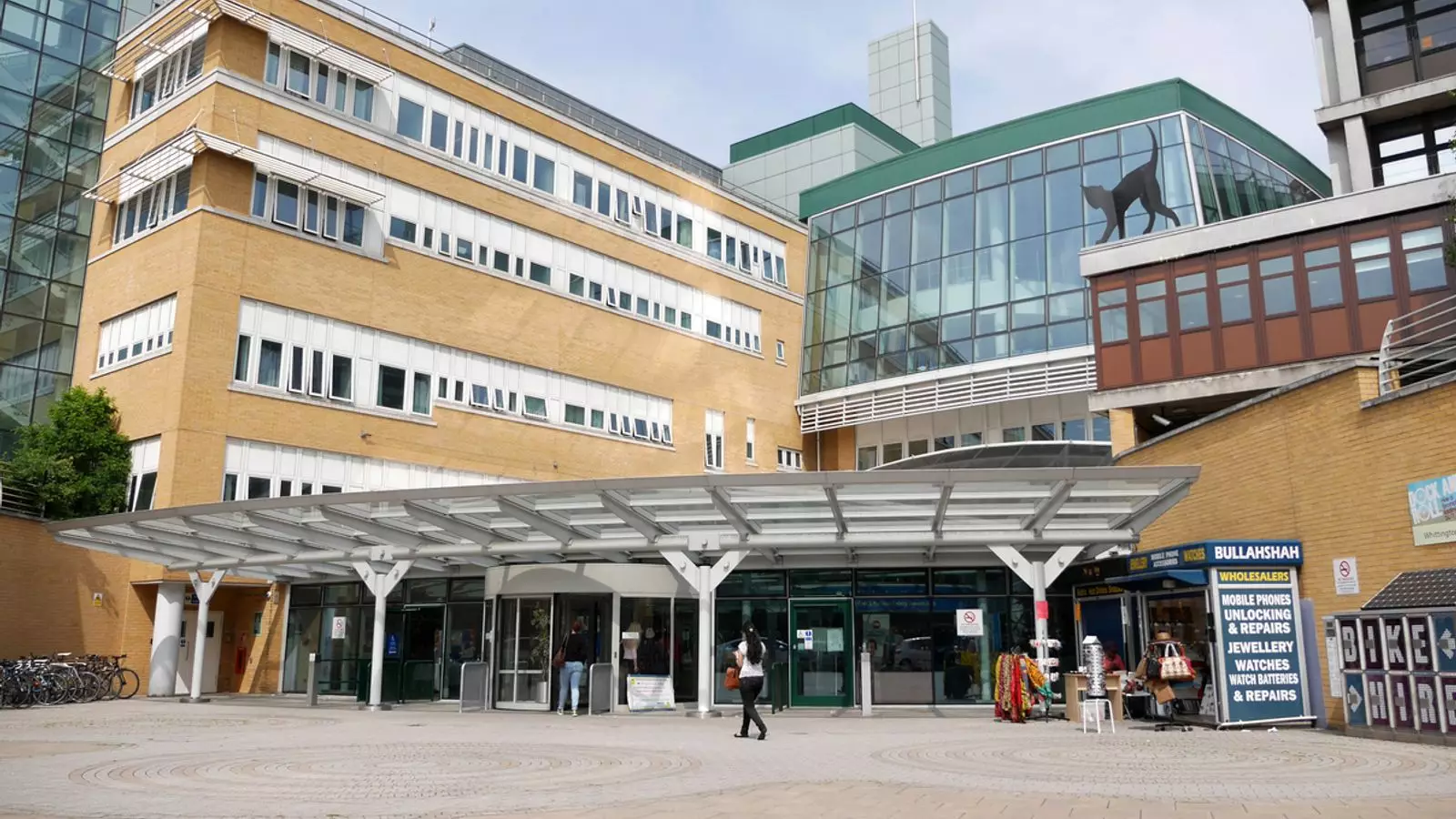The recent announcement of a job advertisement for corridor nurses at a hospital in north London has thrown a glaring spotlight on the dire state of the National Health Service (NHS) as it heads into what many are calling a ‘quad-demic’ winter. With hospitals facing unprecedented pressures due to simultaneous surges in flu, COVID-19, norovirus, and respiratory syncytial virus (RSV), the very essence of patient care is now being compromised. Whittington Hospital’s decision to recruit nurses specifically for corridor care underscores a disturbing trend: the normalization of inadequate healthcare provisions.
Across the UK, the situation has escalated to a point where more than a dozen hospitals have declared critical incidents. This dramatic action indicates an operational breakdown where hospitals are overwhelmed by the patient influx, resulting in a lack of space within wards. The term “corridor care” has made its way into public discourse, thanks to its troubling implications; it epitomizes a level of healthcare service that society has long strived to avoid. Such conditions are reminiscent of emergency situations in resource-poor settings, making it even more disheartening to witness them unfold within a health system celebrated for its comprehensive care.
In its defense, the Whittington Health NHS Trust has stated that using corridors for patient care is an “absolute last resort.” Their attempts to recruit additional staff on a temporary basis, along with a plea for mutual aid from partner organizations, suggest that the situation is not improving but rather intensifying. They have formally apologized to patients whose care has not met their traditional standards, recognizing that they are at a breaking point. Such statements indicate not only a reactive posture but reflect an acute awareness of the gravity of the circumstances involved; however, they also bring to light an unsettling acceptance of a new norm.
In a recent commentary, Health Secretary Wes Streeting expressed his concern about these conditions after witnessing frail and vulnerable patients confined to trolleys in crowded emergency departments. His remarks reveal a haunting reality—what many consider normal levels of care deteriorate to unimaginable situations for the elderly and the ailing. As Streeting articulated, the ongoing crisis impacts not only the patients themselves but also their families, whose worries heighten amid the chaos.
Compounding the narrative, Ian Higginson of the Royal College of Emergency Medicine shared concerns on social media, framing corridor care as normal practice rather than an anomaly. His assertions are alarming, given that such conditions degrade the quality of care that should be afforded to every patient.
Dr. Adrian Boyle, also from the Royal College of Emergency Medicine, took a strong stance against the phenomenon of corridor care. He described it as “degrading, dehumanizing, and dangerous,” emphasizing that providing safe patient care in compromising environments is impossible. His assertions reflect a growing consensus among healthcare professionals that current operational practices must not only be critiqued but fundamentally rethought.
It is critical to understand that this crisis is not merely about staffing shortages or increased patient numbers; it ephemerally reveals systemic failures that demand a response beyond temporary fixes. The fact that corridor care is being treated as a viable solution illustrates the need for a comprehensive plan to bolster NHS resources, facilities, and workforce sustainability.
As citizens and stakeholders in a public healthcare system, we must evaluate the implications of accepting corridor care as part of our healthcare landscape. This predicament forces us to reconsider how we value healthcare infrastructure and policy. The overuse of makeshift care will not only compromise immediate patient outcomes but could also erode public trust in the NHS. If left unaddressed, the normalization of compromised care could threaten the principles that form the foundation of healthcare: safety, dignity, and compassion.
The current plight of corridor care is a reflection of deeper systemic issues within the NHS that require urgent vertical alignment—resources must be channeled not just into managing demand, but also into creating a sustainable and compassionate healthcare system. We owe it to patients, healthcare professionals, and society as a whole to demand better conditions for care delivery and ensure that corridor care remains an exception, never the rule.


Leave a Reply